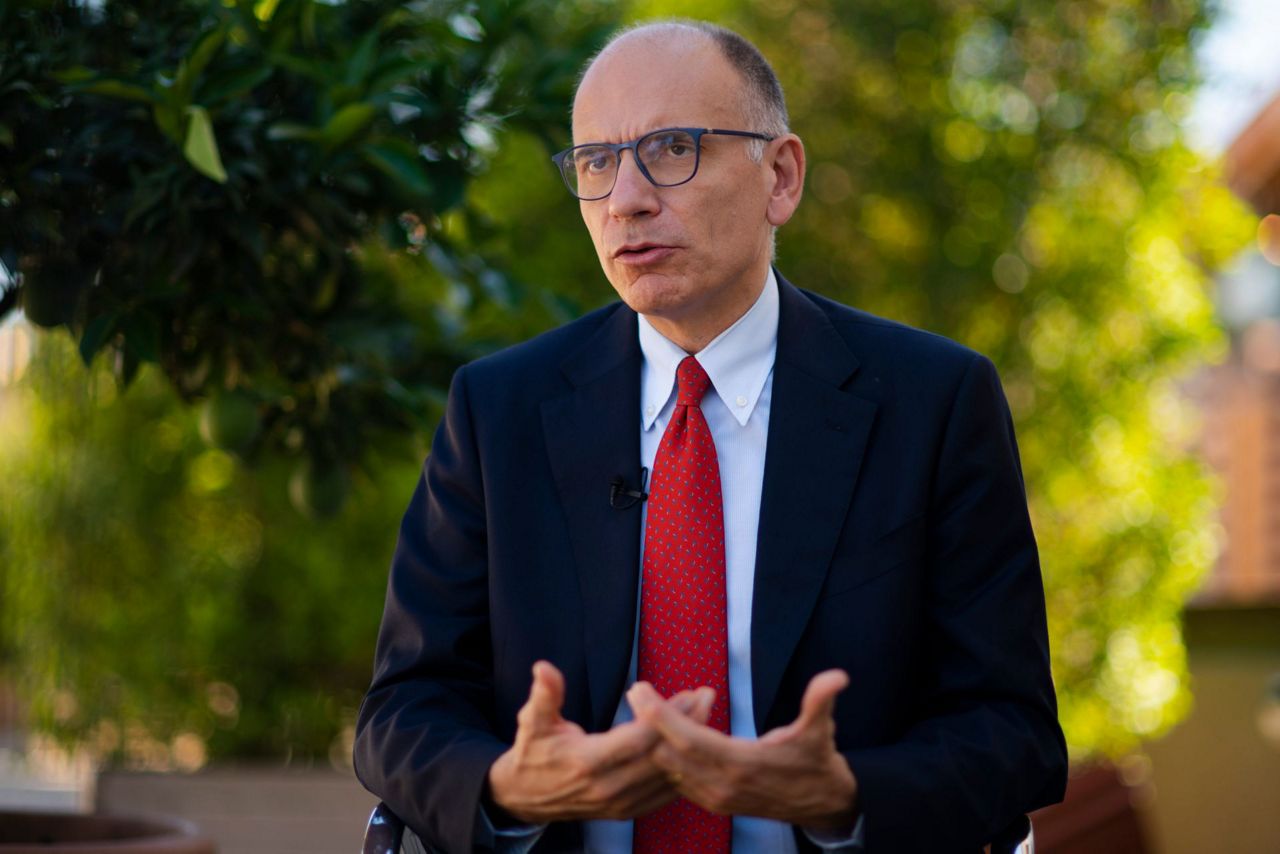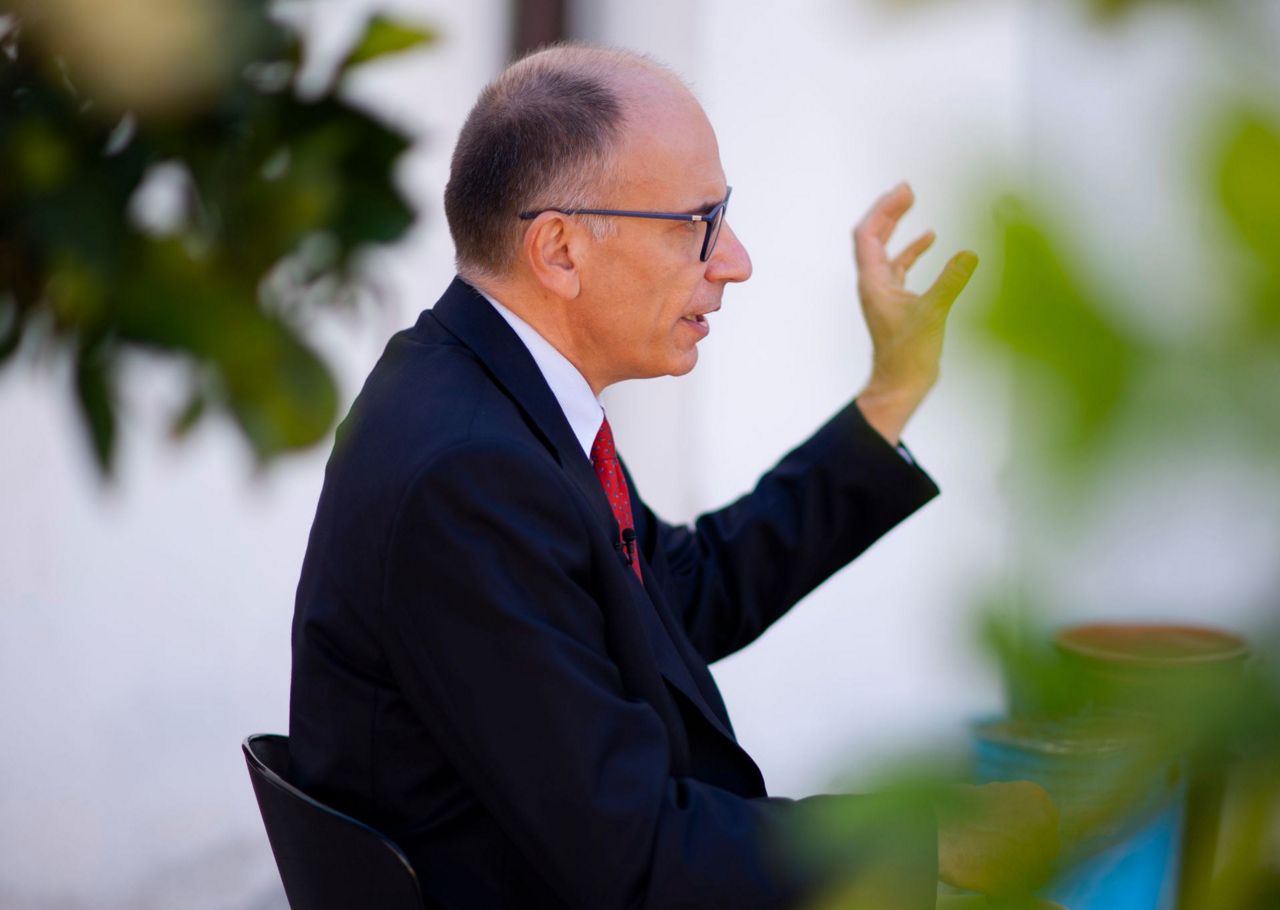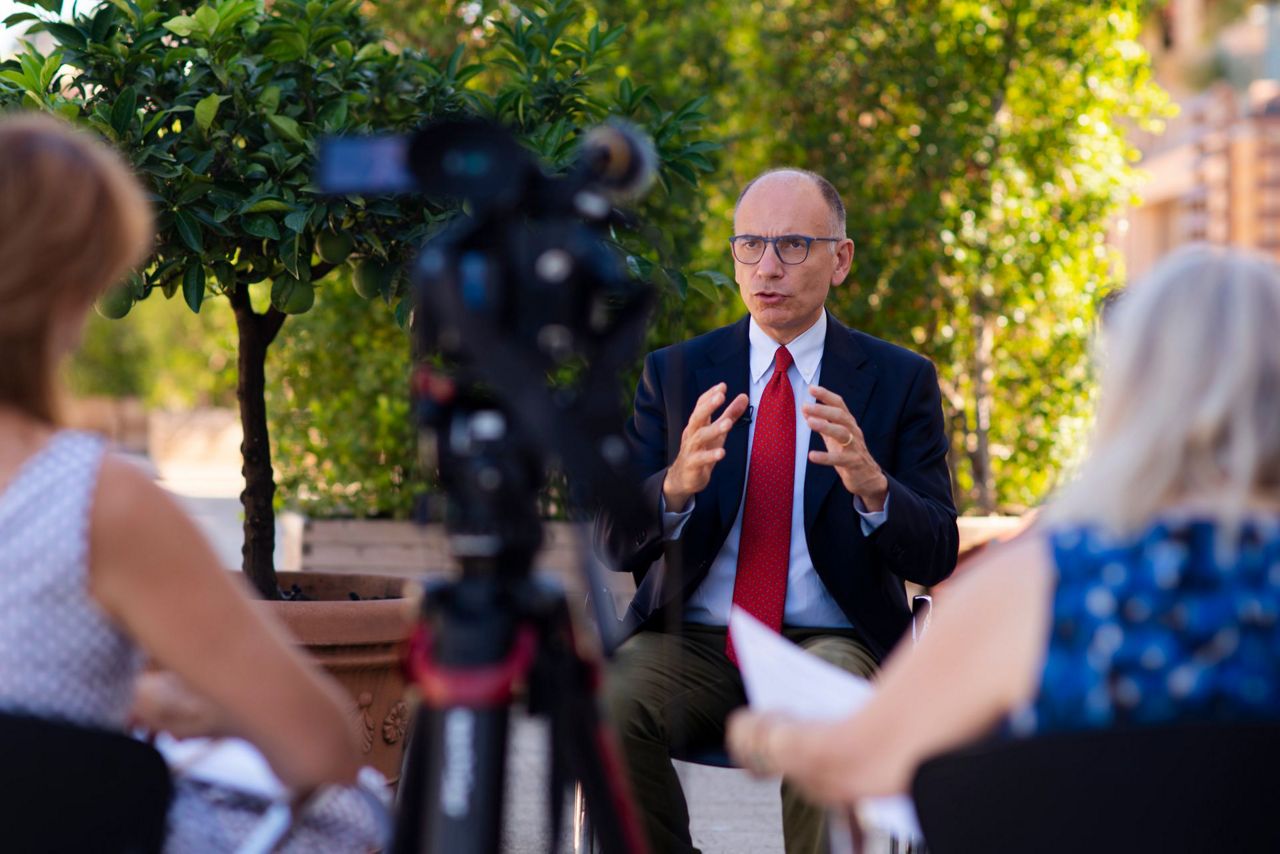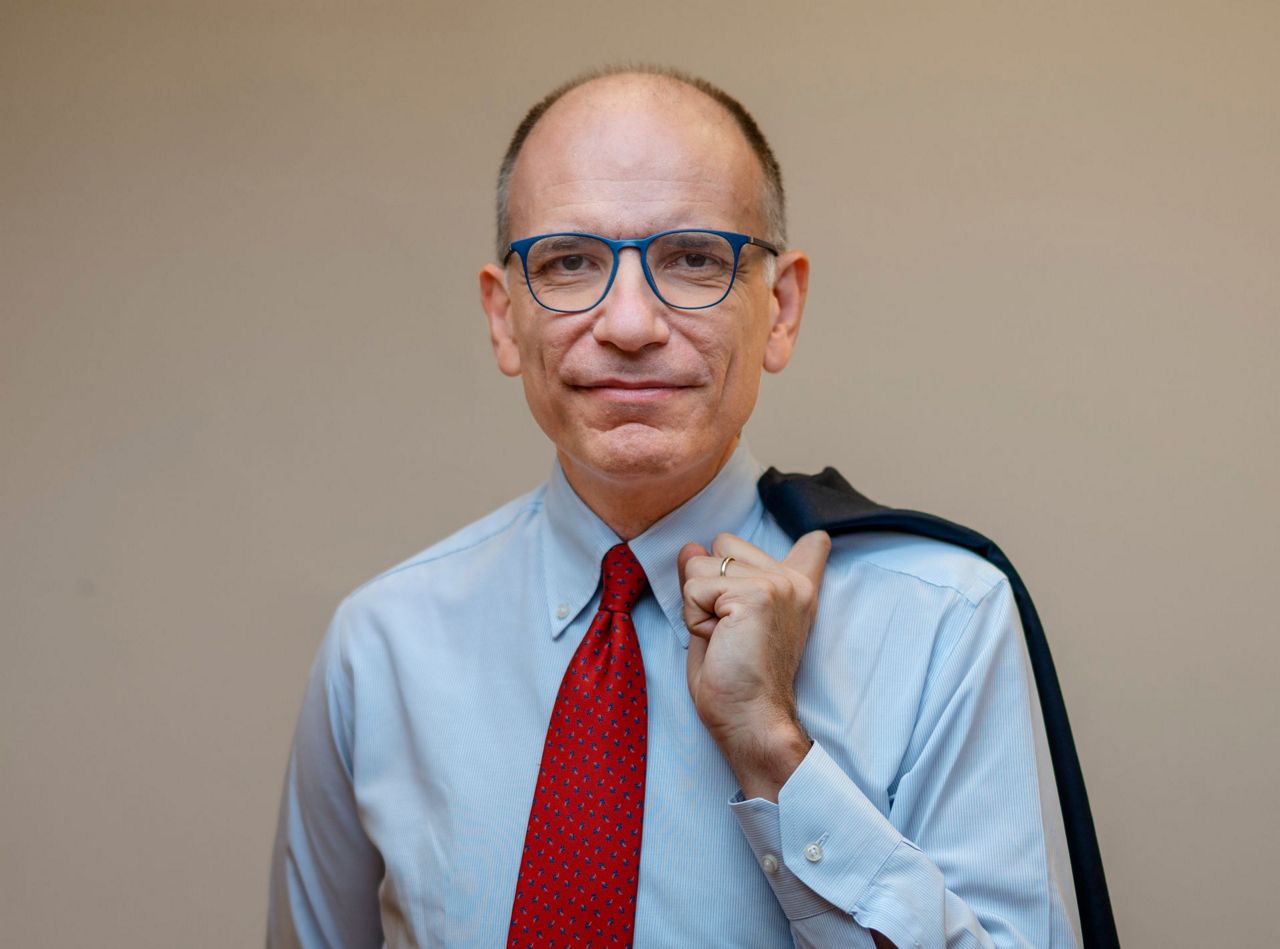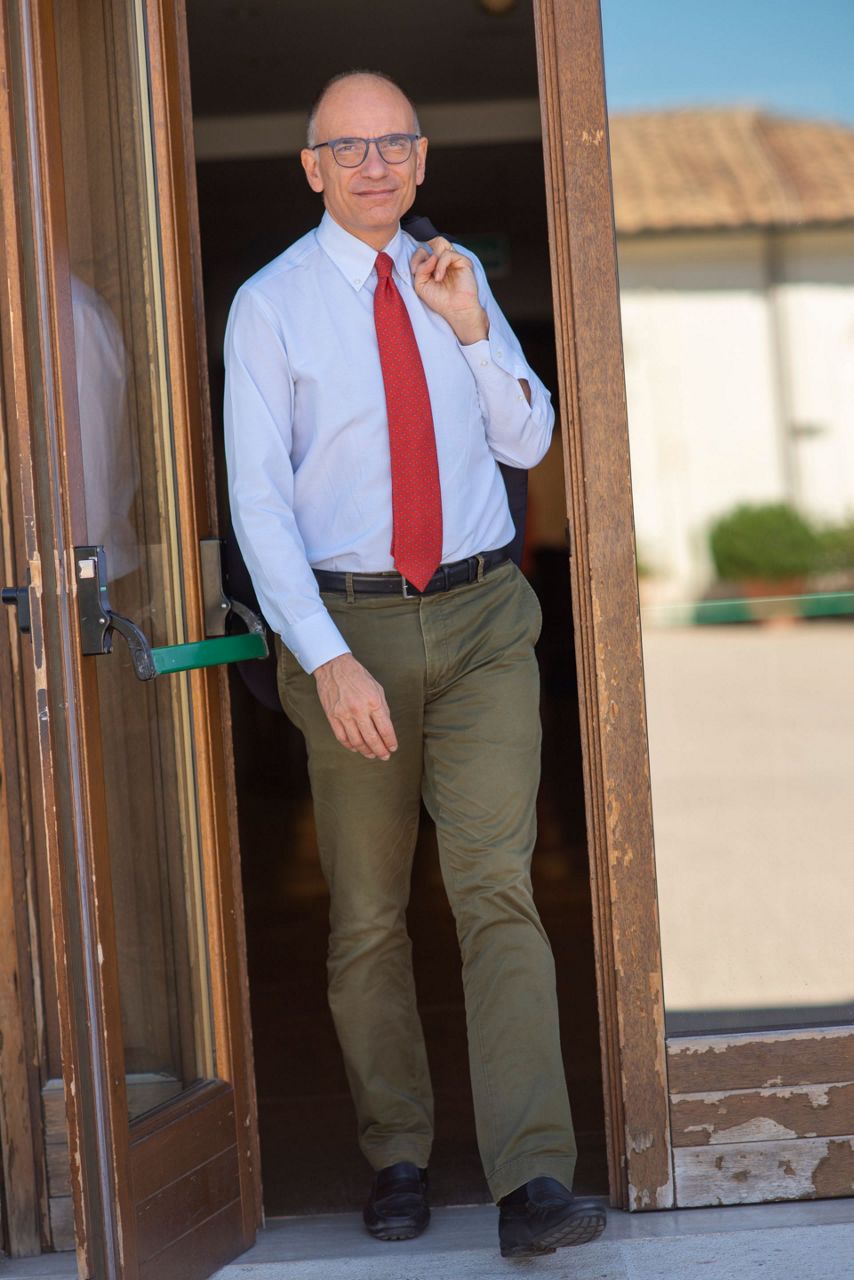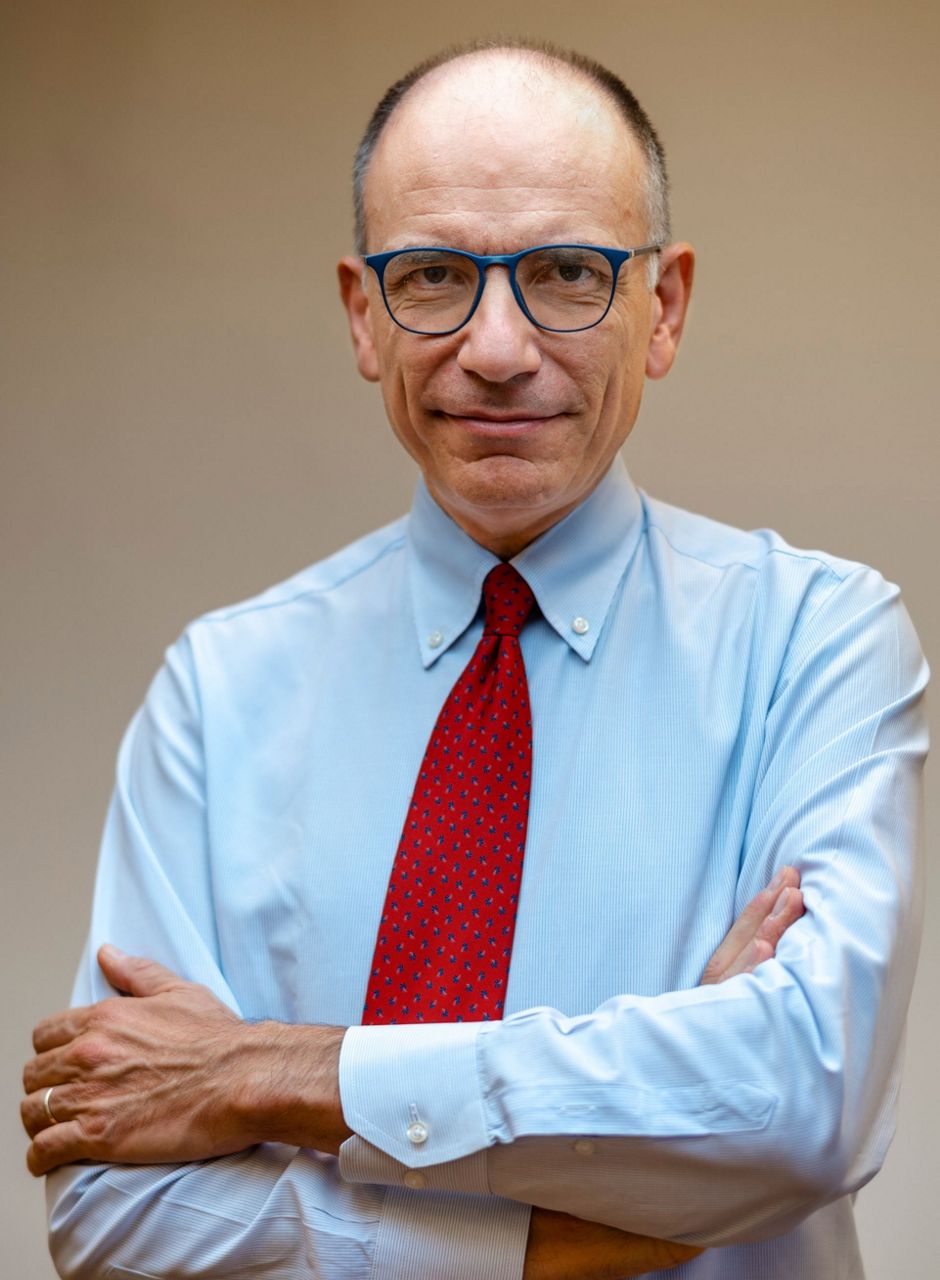ROME (AP) — The leader of Italy's center-left campaign alliance on Tuesday cited the gains of a Swedish populist party with neo-Nazi roots as further proof that fear is propelling the far-right’s growth in Europe. He also warned that the outcome of his own country's approaching election could determine Italy's future role in Europe.
"Fears are today a big part of the way in which our societies are living this period,'' former Premier Enrico Letta said, citing the pandemic and its economic woes, the energy crisis of soaring utility bills and Russia's war against Ukraine.
“It's easier for the right, for the extreme right to push, to boost (itself) on these fears,'' Letta, who leads the Democratic Party, told The Associated Press in an interview.
In the Swedish election last weekend, a populist, anti-immigration party, Sweden Democrats, surged in balloting to become the country's second-largest political force. Fears of gang violence dominated Sweden's election campaign.
“It’s a moment in which sentiments of fear are getting a foothold in Europe,″ Letta said.
The elections in Italy on Sept. 25 "are like a Brexit referendum in the U.K,.'' Letta said, referring to the stunning 2016 vote that saw Britain decide to leave the European Union.
“You have just two possible solutions. The solution that the right is raising is a solution of nationalism,'' Letta said. “The other solution is on our side, and our solution means Europe.”
His chief rival in Italy’s election is Giorgia Meloni, who leads the far-right Brothers of Italy party, which has roots in neo-fascism. She hopes to become the first woman to hold the Italian premiership.
In opinion polls, Letta’s Democratic Party has been running neck-and-neck with Meloni's party. Voter surveys indicate her party, which has called for a naval blockade of Africa's Mediterranean coast to try to stop migrants from reaching Italy, could garner more than 20% in the upcoming balloting. In the previous election it won only a 4% share.
Because Italy's electoral system rewards parties that join forces in campaign alliances, Meloni holds a big advantage over Letta.
She has forged alliances with the right-wing, anti-migrant League leader Matteo Salvini and former Premier Silvio Berluscon,i who heads the center-right Forza Italia party. Letta, meanwhile, has refused to ally with the 5-Star Movement — Italy's biggest populist party in Parliament which helped collapse Premier Mario Draghi's government in July — while his overture for a campaign alliance with two small centrist parties was rebuffed.
Should the right triumph, “it's a danger for the future of Italy,'' said Letta. ”It is a danger because Italy needs European cooperation. And without European cooperation it would be impossible to find solutions to all our problems.''
Letta in the interview ruled out any Draghi-style broad coalition government, like the one the former European Central Bank chief formed in early 2021 to help Italy's pandemic-battered economy recover.
“There won't be any governments of national unity,” he said.
Letta spoke during a break from campaigning across Italy in an electric bus. He chose that vehicle type to highlight a scarcity of charging stations in Italy. “The country isn’t modern,” Letta said.
His Democratic Party views the election outcome as critical for civil rights.
“Italy is years behind” on rights, Letta said. For example, Italy doesn’t allow same-sex marriage or adoption by singles. “The right proposes going backward,” he said.
He reflected on polemics over Peppa Pig, the popular cartoon character. Recently, a candidate from Meloni’s party expressed outrage that the cartoon featured a family with two female polar bears as parents and demanded that Italian state TV, funded by taxpayers, never air such an episode.
Meloni has hailed what she calls “natural” families and has denounced LGBTQ+ lobbies.
The campaign demand to censor a cartoon is “really madness,” said Letta.
“Our model is Europe, our model isn’t the Hungary of (Viktor) Orban or the Poland of (Jaroslaw) Kacynzski," Letta said, referring to the leaders of right-wing political parties whose policies have been hostile to LGBTQ+ communities.
Some Italian women have voiced concern that Meloni might seek to abolish a law that allows abortion in the first 12 weeks, and after that if the women’s health or life is endangered.
“Meloni is very ambiguous on this topic and on this question,″ Letta said. In some regions of Italy, including the central Marche, where Brothers of Italy govern, the shortage of doctors willing to perform abortions in public hospitals has forced women to travel across Italy for the procedure.
Meloni has said that any government she leads wouldn’t change the law. But she says there should be more assistance for those who want to give birth.
Copyright 2022 The Associated Press. All rights reserved. This material may not be published, broadcast, rewritten or redistributed without permission.



